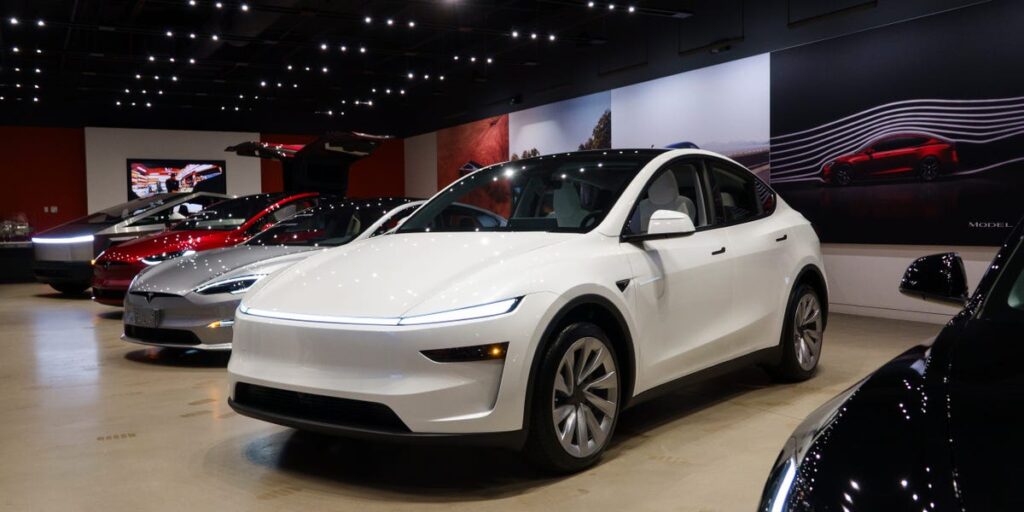EV tax credit season is over. Federal support for EV discounts is gone. Now, automakers are charting their own paths to sell you an electric vehicle.
With the sunsetting of the $7,500 tax credit on September 30, car companies are coming up with other ways to entice the US EV buyer — or re-thinking their path to electrification entirely.
On Tuesday, Tesla unveiled a lower-cost version of its popular Model 3 and Model Y vehicles, which removes features such as power seats, FM/AM radio, and Tesla’s driver-assistance software, Autopilot. The trade-offs amount to about a $5,000 price reduction.
Meanwhile, other legacy automakers are offering discounts on existing EV models.
As of Tuesday, Hyundai was advertising on its website a $11,000 cash back incentive for select trims of the 2025 Ioniq 5.
Ford and General Motors are also exploring ways to extend the $7,500 tax credit by allowing down payments on EVs at dealer lots, according to a Reuters report.
Spokespeople for Tesla, Hyundai, Ford, and GM did not respond to a request for comment.
Ivan Drury, director of insights at Edmunds, told Business Insider that the end of the tax credits has shown how “creative” automakers are trying to get to sell their cars.
“The overarching message of tax credits going away for EVs has had a very different set of approaches from each automaker,” Drury said. “Which approach will be most successful? Debatable.”
However, Drury notes that these discounts are not intended to increase EV sales, but rather to sustain them.
“Nobody’s looking to increase. That’s cuckoo talk at this point,” he said. “You just want to maintain that basic level of sustainable sales, and this is the different methodologies that each of them have taken.”
Some of the same automakers extending discounts are also pumping the brakes on the EV revolution — killing new models before they could even touch a dealer lot. They’ve called it a moment to re-strategize.
Last month, Stellantis announced that it would discontinue production of the Ram REV 1500, a full-sized electric pickup truck, citing slowing demand in North America.
“Stellantis is reassessing its product strategy,” the company said in the announcement.
Acura confirmed to Business Insider in late September that it would discontinue production of its ZDX, an all-electric SUV. The move was in part to better align with Acura’s “long-term strategic goals,” a spokesperson said at the time.
Notably, Acura will still move forward with the revival of the iconic RSX nameplate with an all-electric, compact SUV variant. It’s set to launch in the US in the second half of 2026.
How much the lower-cost EVs will prop up sales for automakers is unclear, Drury said.
“We’re going to have to give that a few months,” he said. “They’ve each taken such a different route.”


